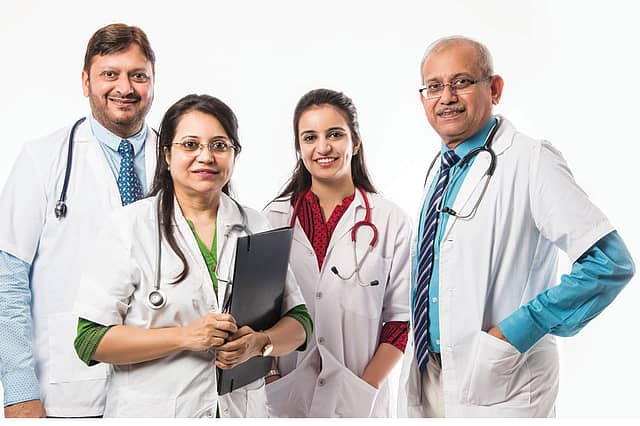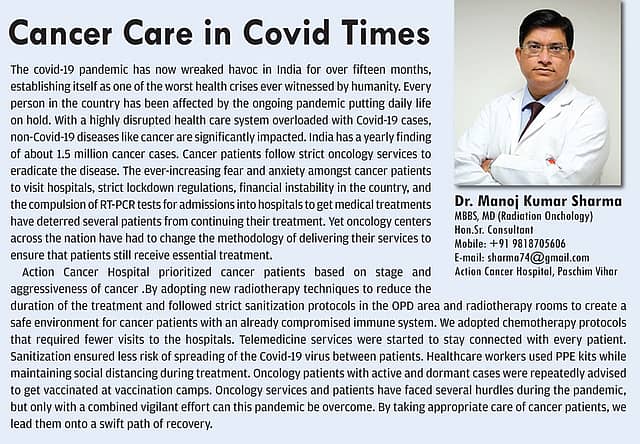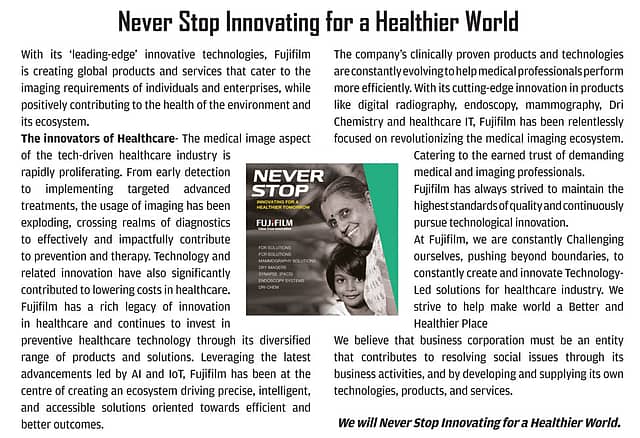National Doctor’s Day

The Covid-19 pandemic has ravaged the world for more than a year now. Humanity is struggling to escape from the grasps of this pandemic that has put lives on hold. More than 178 million cases of Covid-19 have been confirmed, with more than 3.87 million confirmed deaths attributed to COVID-19, making it one of the deadliest pandemics in history. People from various social strata have multiple means to cope with this grinding halt in their lifestyles. The only constants being "Wear masks and maintain social distancing." Under the lockdown process, when most people are in the safety of their homes figuring out various means of entertainment, we forget about the struggle that is going out there in the world. We forget about the healthcare workers who leave their houses' safety and wade through a sea of infection to provide critical healthcare facilities to patients suffering from Covid-19. We forget about the countless nurses and doctors that have sacrificed their personal lives to uphold the Hippocratic oath: "I solemnly pledge myself to consecrate my life to service of humanity" and subsequently, "The health of my patient will be my first consideration." We forget about those frontline workers who have lost their lives fighting the "worst pandemic" in the history of humankind. Let us remember these saviors and express our gratitude for their hard work, dedication, and commitments made during this challenging time.
An accomplished healthcare communicator, Dr Swadeep Srivastava, Founder & CEO, HEAL Health says, "In times of unprecedented COVID pandemic, doctors have turned out real heroes. Although the doctor-patient ratio in India is amongst the poorest in the world, yet as frontline responders, the Indian doctors have done a wonderful job by serving humanity beyond their optimum capabilities."

India features a universal multi-payer health care model purchased by a mixture of public and personal insurance alongside the element of just about entirely tax-funded public hospitals. The general public hospital system is free for all Indian residents apart from small, often symbolic co-payments in some services. India's Ministry of Health was set up with autonomy from Britain in 1947. The public authority has focused on wellbeing in its arrangement of five-year plans, every one of which decides state spending needs for the coming five years. Parliament embraced the National Health Policy DOCTOR'S DAY SPECIAL in 1983. Constant vigilance from the Ministry of Health and Family Welfare has seen some drastic improvements from the pre-independence era. Health indicators such as life expectancy, infant mortality rate (IMR), maternal mortality rate (MMR), etc., have constantly improved due to the increasing penetration of healthcare services across the country. Initiatives such as "Janani Shishu Suraksha Karyakarma", "Janani Suraksha Yojana", Reproductive, Maternal, Newborn, Child and Adolescent Health Services, and national programs to curb disease incidences as polio, HIV, TB, leprosy, etc. have also played pivotal roles in improving India's health indicators. But all this is because of the combined effort of the health care workforce that India has. Estimates based on the Census show that India has approximately 20 health workers per 10,000 people. The 2.2 million health workers included 677,000 allopathic doctors accounting for 31% of the health workforce, and 200,000 AYUSH practitioners accounting for 9% of the health workforce. Nurses and midwives (30%) and pharmacists (11%) are the other two large groups. Others, including ophthalmic assistants, radiographers, and technicians, accounted for 9% of the total. The collective contribution of these 2.2 million health workers is India's line of defense against the pandemic. This miraculous defense has now battled two waves of Covid-19 in two consecutive years, giving us the statistics, we have now.

According to the Ministry of Health and Family Welfare, there are 662521 (2.21%) active cases across the country, 28926038 (96.49%) patients have been discharged and, 389302 (1.30%) patients have succumbed to the pandemic. The vaccination drive tasked by the health care workforce has vaccinated 28,87,66,201 as of June 2021. Health care workers are exposed to a multitude of safety and health hazards during their work. These hazards can be latex allergy, bloodborne pathogens, potential chemical and drug exposures, laser hazards, radioactive material, X-ray hazards, waste anesthetic gas exposures, workplace violence, stress, and exposure to foreign pathogens like the Covid-19 Virus. Protecting healthcare workers from the many risks they are subjected to has been the biggest challenge for Indian hospitals. PPE (Personal Protective Equipment) kits and face masks and gloves are the only wardrobe component that frontline workers have utilized since the beginning of the pandemic. Wearing a PPE kit for an entire shift is a task not meant for the weak-hearted. Spending eight hours in a hospital ward filled with patients gasping for oxygen and fighting for survival while constantly being vigilant for the needs of the patients on ventilators who are unconscious is mentally exhausting and back-breaking. Yet day after day, these frontline workers do not slacken their vigilance and effort to provide the best treatment from the available resources.

On the one hand, we see a plethora of news of health care workers breaking down due to witnessing the deaths of several patients on the brink of recovery or due to the emotional and mental exertion they endure daily. But on the other hand, we also hear about healthcare workers performing herculean tasks like traveling nine kilometers through rivers, forests, and mountains to hold a vaccination camp in a small village in Chhattisgarh. This oscillation between emotional breakdowns and feats of bravery must not be taken for granted. It is a beautiful example of humans fighting against overpowering odds giving everything they have. It is proof enough that no matter how beaten down and broken a person is, they will rise and fight back. Health care workers are taught to manage emotions and carry on with the task at hand. But with a pandemic of such enormity, this method of internalizing emotions is bound to have adverse effects in the long run. Sleeplessness also plagues most healthcare workers because of long stressful work hours filled with fear and anxiety. To help healthcare workers, hospitals have set up grievance hotlines and counseling sessions for those most negatively affected. This initiative was started by the Ministry of Health and Family Welfare to help the health care professionals. Hospitals have also started reducing the work hours of doctors and nurses to reduce the individual burden and allow time to revitalize.
Dr Manoj Kumar Sharma, Senior Consultant-Radiation Oncology at Action Cancer Hospital feels that our COVID warriors in white coats who have taken this threat head-on with utmost courage without caring for their lives. Many of them have lost their lives while saving others.Given enough time and crucial government initiatives to tackle the spread of Covid-19, the Indian health care system will achieve a hundred percent vaccination with zero active cases of Covid-19. The growth of healthcare professionals in terms of number, quality, and skill has been rapid and impressive; however, there is an urgent need for better regulation and the enforcement of minimum standards. Healthcare workers often bear the brunt of the outbursts of the people who lose their dear ones. Be it verbal or physical. In grief and anguish, people forget that doctors and nurses are humans themselves who also feel the same emotions that we do. They feel a much stronger sense of failure when a patient dies. We must not forget the effort they put in to save the lives of countless people, and as humans, they can sometimes fail. Despite taking the immense toll of providing selfless aid to millions nationwide, Doctors and healthcare providers work ceaselessly for our sake. We know that when the need arises, we can rely on them and their expertise. On behalf of the citizens of the nation, we wholeheartedly thank these superheroes for being there for the people in need of health care and assistance.
(A marketing initiative by Open Avenues)